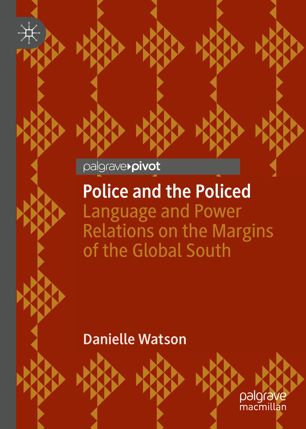

Most ebook files are in PDF format, so you can easily read them using various software such as Foxit Reader or directly on the Google Chrome browser.
Some ebook files are released by publishers in other formats such as .awz, .mobi, .epub, .fb2, etc. You may need to install specific software to read these formats on mobile/PC, such as Calibre.
Please read the tutorial at this link: https://ebookbell.com/faq
We offer FREE conversion to the popular formats you request; however, this may take some time. Therefore, right after payment, please email us, and we will try to provide the service as quickly as possible.
For some exceptional file formats or broken links (if any), please refrain from opening any disputes. Instead, email us first, and we will try to assist within a maximum of 6 hours.
EbookBell Team

4.8
24 reviewsThis book examines communication between police and residents of a designated crime ‘hotspot’ community in the Global South. It looks at communicative realities within a marginalised community in the twin island republic of Trinidad and Tobago and explores how police and the individuals that they police purposefully assign categories to each other before, during and after interactions. It also examines the relations between the police and the community and how power is manifested through authored or assigned labels, stigmas and stereotypes. Overall, it suggests alternative strategies to address problematic police and community relations and provides another standpoint from which communicative redress between police and residents of marginalized communities in the Global South can be approached.